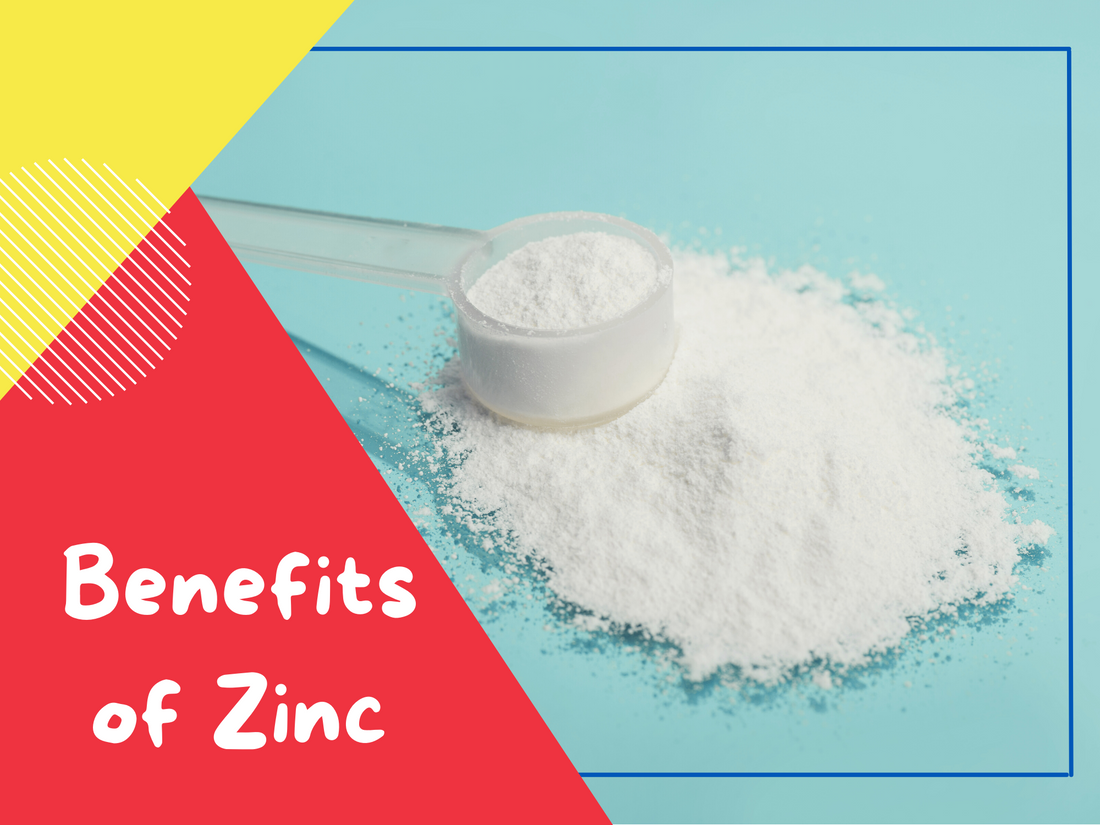Before Coronavirus, it was important for teachers to have a strong immune system.
Now it may be a matter of life and death. Studies show that 1 in 4 teachers are at risk of becoming life-threateningly ill if infected with Covid because of other severe health conditions like heart disease or a compromised immune system.
If you are teaching in person, you need to bolster your immune system to prevent an unplanned field trip to the hospital.
Since we are concerned about your health, Teacher Power has developed a new product: Immunity Boost Teacher Power. This immunity drink is a healthy alternative to coffee. It contains 16.5g of zinc and can be enjoyed hot or cold. Best of all, it comes in two tasty flavors: Caramel Apple and Wassail! Immunity Boost Teacher Power has been designed with top-notch science to fortify your immune system while still tasting great!

How does our immunity blend prep you to do battle with foreign invaders? It all comes down to the zinc.
Zinc is an essential nutrient: which means that your body can’t produce it. It must come from your diet (or by supplementation). You only need zinc in trace amounts, but it is in nearly every cell of the body. And without it over 300 of your enzymes would not be able to function.
The benefits of zinc and zinc gluconate (the form of zinc in Immunity Boost Teacher Power) can help you stay healthy, so you can keep doing an awesome job caring for young minds!
Benefits of Zinc
The benefits of zinc are endless. It is key in the functioning of the senses of taste and smell, the effectiveness of insulin in the body, and much, much more.
Although this article focuses on zinc’s impact on the immune system, we will briefly cover other benefits, including wound healing, skin health, and growth.
As a note, wound healing and skin health indirectly impact your immune system. Your skin is considered your body’s first line of defense against germs. If it’s unhealthy or damaged (and can’t heal itself), it’s harder for the rest of your immune system to keep you healthy.
Immune System
The immune system would be unable to function without zinc. Thymulin, a hormone that promotes T-cell and interleukin-2 production (both of which are key for fighting invaders in the body) is zinc-dependent.
Studies show that zinc-dependent enzymes impact immune system functioning, and zinc is needed for immune system signaling and leucocyte function.
Thus, taking 80-92g of zinc a day has been found to shorten the duration of the common cold by 33%. Taking zinc supplements significantly improves the immune response of the elderly.
Zinc aids in managing oxidative stress. Oxidative stress is a metabolic disorder caused by an imbalance of oxidants and antioxidants which damages cells. This imbalance leads to chronic conditions such as cancer, neurodegeneration, atherosclerosis, etc.
Zinc helps protect cells from damage caused by oxidative stress by stabilizing the plasma membrane, shutting down pro-oxidant enzymes, and reducing hydroxy radicals.
Wound Healing
Zinc is commonly used in hospitals to treat various wounds because it is essential to the repair process. Studies have found that zinc deficiency impairs the body’s ability to heal itself.

Skin Health
You lose about 30,000-40,000 dead skin cells per minute, which is why doctors say your skin is “in a constant of renewal”. This can’t happen without zinc.
Zinc helps make and repair cells. Zinc-dependent proteins are used to remodel the extracellular matrix, and zinc is used in cell division to make new cells.
Many skin disorders are caused by mutations of zinc transporters, dysregulation of zinc transporters, or zinc deficiency.
Acne, a common skin disorder, has been linked to lower levels of zinc. Thus, it is a common ingredient in acne treatment products and for other skin disorders.
Growth
Zinc is crucial for DNA synthesis, RNA synthesis, and cell division. Furthermore, zinc impacts bone metabolism by magnifying the impact of vitamin D. Zinc also interacts with bone growth hormones like osteocalcin, somatomedin C, and others.

Thus, growth is impossible without enough zinc. Studies have found that zinc supplementation improves growth in children under five. As you work with growing kids, you should encourage your students to get enough zinc!
Benefits of Zinc Gluconate
Different forms of zinc supplementation have different benefits.
Immunity Boost Teacher Power contains zinc gluconate. Zinc gluconate is one of the best zinc supplements for lessening cold symptoms such as sore throats, coughing, and sneezing.
Furthermore, taking zinc gluconate helps you recover faster. One study on zinc gluconate lozenges found that they shortened the length of the common cold on average by seven days!
The Take Home
In a Covid-ridden world, you should seriously consider taking zinc supplements! Zinc is crucial to the functioning of your immune system and so much more. It is nearly impossible to stay healthy and avoid illness without enough zinc.
But just because you need it, it doesn’t mean zinc supplements have to taste like medicine! Immunity Boost Teacher Power is an awesome drink to boost your immune system while delivering a great taste.
Go ahead and substitute your coffee in the morning for this super immune-boosting drink. With Teacher Power Immunity Boost, you can be reassured you’re giving your immune system all it needs to stay healthy.
Teacher Power Drinks
The best thing about our new immunity boost line of drinks is they are energy drinks, too. We took our healthy energy drink formula, changed up the flavoring, and added immunity-boosting ingredients to help you stay happy, healthy, and energized. It’s going to be a good year with Teacher Power in your cup!

The content of Teacher Power’s website is for information only, not advice or guarantee of outcome. Information is gathered and shared from reputable sources; however, Teacher Power is not responsible for errors or omissions in reporting or explanation. No individuals, including those taking Teacher Power products, should use the information, resources or tools contained within to self-diagnosis or self-treat any health-related condition. Teacher Power gives no assurance or warranty regarding the accuracy, timeliness or applicability of the content.
By: Emeline Haroldsen
Sources:
Peng, Qian. “The Role of Zinc in Life: A Review”. Journal of Environmental Pathology, Toxicology and Oncology. https://www.dl.begellhouse.com/journals/0ff459a57a4c08d0,233bb66013add72e,28efec9665bbe422.html
Bachmann, Martin F, and Annette Oxenius. “Interleukin 2: from immunostimulation to immunoregulation and back again.” NCBI. 2007. https://www.ncbi.nlm.nih.gov/pmc/articles/PMC2267244/
Bach, JF., Dardenne, M. “Thymulin, a zinc-dependent hormone”. Med. Oncol. & Tumor Pharmacother. 1989. https://link.springer.com/article/10.1007%2FBF02985220
Rink, L. “Zinc and the immune system”. Proceedings of the Nutrition Society. 2000. https://www.cambridge.org/core/journals/proceedings-of-the-nutrition-society/article/zinc-and-the-immune-system/23B26245CF0F773E5F1AA19E9800B82B
Hemilä, Harri. “Zinc lozenges and the common cold: a meta-analysis comparing zinc acetate and zinc gluconate, and the role of zinc dosage.” NIH. 2017. https://pubmed.ncbi.nlm.nih.gov/28515951/
Haase, Hajo, and Lothar Rink. “The immune system and the impact of zinc during aging.” NCBI. 2009. https://www.ncbi.nlm.nih.gov/pmc/articles/PMC2702361/
Marreiro, D.D.N.; Cruz, K.J.C.; Morais, J.B.S.; Beserra, J.B.; Severo, J.S.; De Oliveira, A.R.S. “Zinc and Oxidative Stress: Current Mechanisms”. Antioxidants. 2017. https://www.mdpi.com/2076-3921/6/2/24/htm?__hstc=3584879.7921bf0d7ab734f9822a9c3981f04695.1517097601944.1517097601945.1517097601946.1&__hssc=3584879.1.1517097601947&__hsfp=528229161
Prasad, Ananda S. “Zinc in Human Health: Effect of Zinc on Immune Cells”. NCBI. 2008. https://www.ncbi.nlm.nih.gov/pmc/articles/PMC2277319/
Bhattacharya, Surajit, and R K Mishra. “Pressure ulcers: Current understanding and newer modalities of treatment.” NCBI. 2015. https://www.ncbi.nlm.nih.gov/pmc/articles/PMC4413488/
Maitra, A K, and B Dorani. “Role of zinc in post-injury wound healing.” NCBI. 1992. https://www.ncbi.nlm.nih.gov/pmc/articles/PMC1285847/
Schwartz, J.R., Marsh, R.G. and Draelos, Z.D. “Zinc and Skin Health: Overview of Physiology and Pharmacology”. Wiley Online Library. 2005. https://onlinelibrary.wiley.com/doi/full/10.1111/j.1524-4725.2005.31729?casa_token=SABmkcHlkfsAAAAA%3AGcvC2KHVsyo499lPtS8SrEICih6iUCYuvmvtUFwcj3WKeCV8hQC9CagzfL_gstI7bnJI-lX2jr428Q
Ruth S. MacDonald. “The Role of Zinc in Growth and Cell Proliferation”. The Journal of Nutrition. 2000. https://academic.oup.com/jn/article/130/5/1500S/4686427?login=true
Bangash H.K., Sethi A. “Zinc and skin health: an overview.” In: Preedy V.R. (eds) Handbook of diet, nutrition and the skin. Human Health Handbooks no. 1, vol 2. Wageningen Academic Publishers. 2012. https://link.springer.com/chapter/10.3920/978-90-8686-729-5_11#citeas
Ogawa Y, Kinoshita M, Shimada S, Kawamura T. “Zinc and Skin Disorders”. Nutrients. 2018. https://www.mdpi.com/2072-6643/10/2/199#cite
Tan, J K L, and K Bhate. “A global perspective on the epidemiology of acne.” NIH. 2015. https://pubmed.ncbi.nlm.nih.gov/25597339/
Rostami Mogaddam, Majid et al. “Correlation between the severity and type of acne lesions with serum zinc levels in patients with acne vulgaris.” NCBI. 2014. https://www.ncbi.nlm.nih.gov/pmc/articles/PMC4135093/
Liu, Enju et al. “Effect of Zinc Supplementation on Growth Outcomes in Children under 5 Years of Age.” NCBI. 2018. https://www.ncbi.nlm.nih.gov/pmc/articles/PMC5872795/
Marı́a J. Salgueiro, Marcela B. Zubillaga, Alexis E. Lysionek, Ricardo A. Caro, Ricardo Weill, José R. Boccio. “The role of zinc in the growth and development of children”. Nutrition. 2002. https://www.sciencedirect.com/science/article/pii/S0899900701008127?casa_token=gbj7Iwsb8QoAAAAA:L94adXEvZ09gq1YsBFJyKdqBuW13dL_9j5CWfPly2tdWjYeEUh_GB1GIa63OohiF2OPCggMVsQ
“Zinc”. Mayo Clinic. 2020. https://www.mayoclinic.org/drugs-supplements-zinc/art-20366112
Wax, Emily. “Zinc in Diet”. MedlinePlus. 2019. https://medlineplus.gov/ency/article/002416.htm
Kubala, Jillian. “Zinc: Everything You Need to Know”. Healthline. 2018. https://www.healthline.com/nutrition/zinc
“Zinc Supplement (Oral Route, Parental Route)”. Mayo Clinic. 2021. https://www.mayoclinic.org/drugs-supplements/zinc-supplement-oral-route-parenteral-route/proper-use/drg-20070269
Sass, Cynthia. “Zinc Supplements: What to Know if You’re Thinking of Taking Them”. Explore Health. 2020. https://www.health.com/nutrition/zinc-supplement
“Zinc”. National Institutes of Health. 2021. https://ods.od.nih.gov/factsheets/Zinc-HealthProfessional/
Link, Rachel. “What Are Zinc Supplements Good For? Benefits And More”. Healthline. 2019. https://www.healthline.com/nutrition/zinc-supplements
Yavorski, Kimberly. “What is the Life Span of Skin Cells?”. Sciencing. 2019. https://sciencing.com/skin-regenerate-4566222.html
Eby, G A et al. “Reduction in duration of common colds by zinc gluconate lozenges in a double-blind study.” NCBI. 1984. https://www.ncbi.nlm.nih.gov/pmc/articles/PMC185426/
“Zinc Gluconate”. Drugs.com. https://www.drugs.com/mtm/zinc-gluconate.html
Claxton, G. et al. “How Many Teachers Are at Risk of Serious Illness If Infected with Coronavirus?”. KFF. 2020. https://www.kff.org/coronavirus-covid-19/issue-brief/how-many-teachers-are-at-risk-of-serious-illness-if-infected-with-coronavirus/

